
Journal Menu
► ▼ Journal Menu-
- Metabolites Home
- Aims & Scope
- Editorial Board
- Reviewer Board
- Topical Advisory Panel
- Instructions for Authors
- Special Issues
- Topics
- Sections & Collections
- Article Processing Charge
- Indexing & Archiving
- Editor’s Choice Articles
- Most Cited & Viewed
- Journal Statistics
- Journal History
- Journal Awards
- Conferences
- Editorial Office
Journal Browser
► ▼ Journal BrowserNeed Help?
Announcements
1 October 2025
2024 MDPI Top 1000 Reviewers
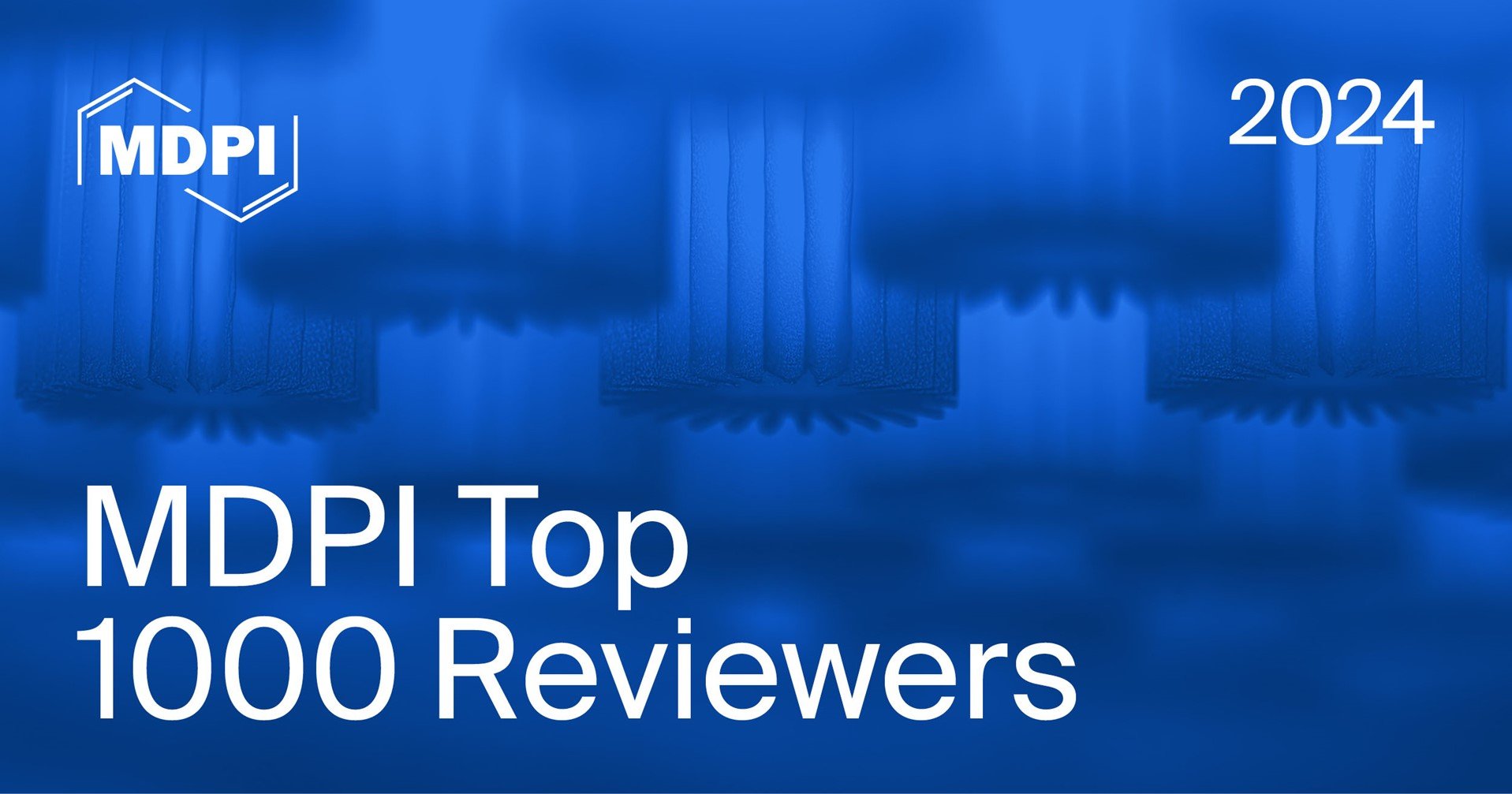
We are honored to recognize the 2024 MDPI Top 1000 Reviewers—scholars whose exemplary commitment to rigorous and constructive peer review is vital in upholding the highest standards of academic publishing.
Selected from a distinguished pool of 215,000 reviewers from 65 countries and regions worldwide, these honorees stand out for their exceptional expertise, diligence, and dedication to advancing research through timely and thoughtful reviews. Their constructive and impartial feedback ensures the publication of high-quality, impactful research, while their timely reviews facilitate swift revisions and faster publication of innovative work.
Peer review is the invisible foundation of academic progress. With gratitude and respect, we celebrate these 1000 scholars who made that foundation stronger in 2024. We respected all privacy preferences, with part of nominees opting for limited attribution.
The names of these reviewers are listed below in alphabetical order by first name:
|
Abbas Yazdinejad |
Hanane Boutaj |
Oscar De Lucio |
|
Abdessamad Belhaj |
Hany H. Arab |
Otilia Manta |
|
Abdolreza Jamilian |
Hao Zang |
Panagiotis D. Michailidis |
|
Abdul Waheed |
Hatem Amin |
Panagiotis Simitzis |
|
Abiel Aguilar-González |
Henry Alba |
Paola Prete |
|
Adina Santana |
Hiroyuki Noda |
Paolo Trucillo |
|
Aditya Velidandi |
Hitoshi Tanaka |
Patricia Kara De Maeijer |
|
Adrian Stancu |
Horst Lenske |
Patrícia Pires |
|
Adriana Borodzhieva |
Hossein Azadi |
Paulo Schwingel |
|
Adriana Cristina Urcan |
Houlin Yu |
Pavel Loskot |
|
Adriano Bressane |
Huaifu Deng |
Pedro García-Ramírez |
|
Agbotiname Imoize |
Huamin Jie |
Pedro Pablo Zamora |
|
Agustin L. Herrera-May |
Hugo Lisboa |
Pedro Pereira |
|
Ahmed Arafa |
Igor L. Zakharov |
Pei-Hsun Wang |
|
Ahmet Cagdas Seckin |
Igor Litvinchev |
Pellegrino La Manna |
|
Ailton Cesar Lemes |
Igor Vujović |
Petar Ozretić |
|
Akash Kumar |
Ildiko Horvath |
Petko Petkov |
|
Akihiko Murayama |
Ilya A. Khodov |
Petr Komínek |
|
Alain E. Le Faou |
Ilya Zavidovskiy |
Petras Prakas |
|
Alain Massart |
Imran Ali Lakhiar |
Petro Pukach |
|
Alejandro Plascencia |
Ines Aguinaga-Ontoso |
Petru Alexandru Vlaicu |
|
Aleksandar Ašonja |
Ioan Hutu |
Phil Chilibeck |
|
Aleksandra Głowacka |
Ioan Petean |
Pia Lopez-Jornet |
|
Aleksandra Nesić |
Irena M. Ilic |
Pietro Geri |
|
Alessio Ardizzone |
Isaac Lifshitz |
Pingfan Hu |
|
Alessio Faccia |
Ismael Cristofer Baierle |
Piotr Cyklis |
|
Alexander E. Berezin |
I-Ta Lee |
Piotr Gauden |
|
Alexander Lykov |
Itzhak Aviv |
Piotr Gawda |
|
Alexander Robitzsch |
Iustinian Bejan |
Pradeep Kumar Panda |
|
Alexandre Landry |
Ivan Matveev |
Pradeep Varadwaj |
|
Alexey Chubarov |
Ivan Pavlenko |
Presentación Caballero |
|
Alexey Morgounov |
Ivana Mitrović |
Pu Xie |
|
Alexis Rodríguez |
Iyyakkannu Sivanesan |
Qingchao Li |
|
Alfredo Silveira De Borba |
Jacek Abramczyk |
Qinghua Qiu |
|
Ali Hashemizdeh |
Jacques Cabaret |
Qingwei Chen |
|
Alison De Oliveira Moraes |
Jaime A. Mella-Raipán |
Radoslaw Jasinski |
|
Aliyu Aliyu |
Jaime Taha-Tijerina |
Radu Racovita |
|
Alok Dhaundiyal |
James Chun Lam Chow |
Rafael Galvão De Almeida |
|
Álvaro Antón-Sancho |
James Chung-Wai Cheung |
Rafael Melo |
|
Amit Ranjan |
James O. Finckenauer |
Rafal Kukawka |
|
Amritlal Mandal |
Jan Cieśliński |
Rafał Watrowski |
|
Ana Isabel Roca-Fernández |
Ján Moravec |
Raffaele Pellegrino |
|
Ana Tomić |
Jarbas Miguel |
Rajender Boddula |
|
Anas Alsobeh |
Jaroslav Dvorak |
Ralf Hofmann |
|
Anastasios Karayiannakis |
Jarosław Przybył |
Ran Wang |
|
Andre Luiz Costa |
Jasenka Gajdoš Kljusurić |
Ranko S. Romanić |
|
Andrea Bianconi |
Jasmina Lukinac |
Ratna Kishore Velamati |
|
Andrea Sonaglioni |
Jawad Tanveer |
Rebecca Creamer |
|
Andrea Tomassi |
Jean Carlos Bettoni |
Reggie Surya |
|
Andrés Fernando Barajas Solano |
Jennie Golding |
Rehan Siddiqui |
|
Andrés Novoa |
Jerzy Chudek |
Renato Maaliw |
|
Andreu Comas-Garcia |
Jhih-Rong Liao |
Reuven Yosef |
|
Andrew Lane |
Jiachen Li |
Ricardo García-León |
|
Andrew Lothian |
Jianzhu Liu |
Richard Murray |
|
Andrew Sortwell |
Jiaquan Yu |
Robert Boyd |
|
Andrius Katkevičius |
Jibing Chen |
Robert H. Eibl |
|
Andromachi Nanou |
Jie Gao |
Robert James Crammond |
|
Andrzej Kielian |
Jie Hua |
Robert Oleniacz |
|
Andrzej Kozłowski |
Jill Channing |
Roberto Passera |
|
Andrzej Zolnowski |
Jinfeng Li |
Rodolpho Fernando Vaz |
|
Ángel Josabad Alonso-Castro |
Jinle Xiang |
Rodrigo Galo |
|
Ángel Llamas |
Jinliu Chen |
Roger E. Thomas |
|
Angelo Ferlazzo |
Jinyao Lin |
Roger W. Bachmann |
|
Angelo Marcelo Tusset |
Jinyu Hu |
Rogério Leone Buchaim |
|
Anil K. Meher |
Jiří Remr |
Roman Trach |
|
Animesh Kumar Basak |
Jiying Liu |
Roman Trochimczuk |
|
Anita Silvana Ilak Peršurić |
João Everthon Da Silva Ribeiro |
Romil Parikh |
|
Anna Kharkova |
Joao Pessoa |
Romina Fucà |
|
Anna Lenart-Boroń |
Joaquim Carreras |
Ronald Nelson |
|
Anna Piotrowska |
John Adams Sebastian |
Rosie Yagmur Yegin |
|
Anne Anderson |
John Van Boxel |
Roxana Lucaciu |
|
Antiopi-Malvina Stamatellou |
Jonathan Puente-Rivera |
Rui Sales Júnior |
|
Antonia Kondou |
Jordi-Roger Riba |
Rui Vitorino |
|
Antonio Miguel Ruiz Armenteros |
Jorge De Andres-Sanchez |
Ruo Wang |
|
Anusorn Cherdthong |
Jorge Guillermo Diaz Rodriguez |
Ryoma Michishita |
|
Aram Cornaggia |
Jorge Luis Zambrano-Martinez |
Sabina Necula |
|
Ariana Saraiva |
José F. Fontanari |
Sabina Umirzakova |
|
Ariel Soares Teles |
José Felipe Orzuna-Orzuna |
Said EL-Ashker |
|
Aristeidis Karras |
José Francisco Segura Plaza |
Saïf Ed-Dı̂n Fertahi |
|
Arnaud Dragicevic |
José Luis Díaz |
Salvatore Romano |
|
Artem Obukhov |
José Luis Rivera-Armenta |
Sándor Beszédes |
|
Arvind Kumar Shukla |
Jose M. Miranda |
Santiago Lain |
|
Arvind Negi |
Jose M. Mulet |
Sara Black Brown |
|
Athanasios A. Panagiotopoulos |
Jose Navarro-Pedreño |
Sarat Chandra Mohapatra |
|
Augustine Edegbene |
José Pedro Cerdeira |
Sarunas Grigaliunas |
|
Aunchalee Aussanasuwannakul |
Jouni Räisänen |
Saša Milojević |
|
Aurel Maxim |
Jui-Yang Lai |
Sawsan A. Zaitone |
|
Barbara Symanowicz |
Juliana Fernandes |
Scott E. Hendrix |
|
Bartosz Płachno |
Julio Plaza Díaz |
Seong-Gon Kim |
|
Bela Kocsis |
Juliusz Huber |
Sergii Babichev |
|
Benedetto Schiavo |
Jun Liu |
Sergio Da Silva |
|
Bernhard Koelmel |
Junyu Chen |
Sérgio Felipe |
|
Bhupendra Prajapati |
Karan Nayak |
Sergio Guzmán-Pino |
|
Bierng-Chearl Ahn |
Karel Allegaert |
Seyed Kourosh Mahjour |
|
Bo Zhou |
Katarina Aškerc Zadravec |
Seyed Masoud Parsa |
|
Bohong Zhang |
Katarzyna Kubiak-Wójcicka |
Shedrach Benjamin Pewan |
|
Bonface Ombasa Manono |
Katarzyna Peta |
Shehwaz Anwar |
|
Bozhidar Stefanov |
Katarzyna Tandecka |
Shengwen Tang |
|
Brach Poston |
Katherine Bussey |
Shih-Lin Lin |
|
Byeong Yong Kong |
Katsuya Ichinose |
Shilong Li |
|
Caio Sampaio |
Kazuharu Bamba |
Shing-Hwa Liu |
|
Caius Panoiu |
Kazuhiko Kotani |
Shu Yuan |
|
Caiyun Wang |
Kazuhiko Nakadate |
Shuohong Wang |
|
Calin Mircea Gherman |
Keigi Fujiwara |
Shuolin Xiao |
|
Camelia Delcea |
Keith Rochfort |
Shuping Wu |
|
Cardellicchio Angelo |
Kenneth Waters |
Sihui Dong |
|
Carlos Alberto Ligarda Samanez |
Keren Dopelt |
Sławomir Rabczak |
|
Carlos Almeida |
Kira E. Vostrikova |
Sojung Kim |
|
Carlos Balsas |
Kit Leong Cheong |
Songli Zhu |
|
Carlos López-de-Celis |
Konstantinos Vergos |
Soonhee Hwang |
|
Carlos Marcuello |
Koyeli Girigoswami |
Soo-Whang Baek |
|
Carlos Pascual-Morena |
Krzysztof R. Karsznia |
Soufiane Haddout |
|
Carlos Torres-Torres |
Krzysztof Szwajka |
Sousana Papadopoulou |
|
Casey Watters |
Krzysztof Wołk |
Spiros Paramithiotis |
|
Castillo Castillo |
Kumar Ganesan |
Spyridon Kaltsas |
|
Changmin Shi |
Lan Lin |
Srecko Stopic |
|
Chao Chen |
László Radócz |
Srinivasan Sathiyaraj |
|
Chao Gu |
Laurent Donzé |
Stefano Mancin |
|
Chao Zhang (China) |
Lei He |
Subhadeep Das |
|
Chao Zhang (Singapore) |
Lei Huang |
Sumedha Nitin Prabhu |
|
Chellapandian Maheswaran |
Leonard-Ionut Atanase |
Sushant K. Rawal |
|
Cheonshik Kim |
Leonardo Henrique Dalcheco Messias |
Svetoslav Todorov |
|
Chia Hung Kao |
Leonie Brummer |
Szymon Janczar |
|
Chiachung Chen |
Levon Gevorkov |
Tadeusz Kowalski |
|
Chiara Cinquini |
Li Fu |
Tadeusz Sierotowicz |
|
Chieh-Chih Tsai |
Lidija Hauptman |
Taha Koray Sahin |
|
Christian Rojas |
Lin-Fu Liang |
Tahir Cetin Akinci |
|
Chu Zhang |
Ling Yang |
Takuo Sakon |
|
Chuanyu Sun |
Lingli Deng |
Tamara Lazarević-Pašti |
|
Chun-Wei Yang |
Ljubica Kazi |
Tao Zhang |
|
Claudia Bita-Nicolae |
Lotfi Boudjema |
Taras P. Pasternak |
|
Constant Mews |
Louis Moustakas |
Tarek Eldomiaty |
|
Cristian Vacacela Gomez |
Luca Ulrich |
Taro Urase |
|
Cristiano Matos |
Luis Adrian De Jesús-González |
Tenzer Robert |
|
Cristian-Valeriu Stanciu |
Luis Alfonso Díaz-Secades |
Thawatchai Phaechamud |
|
Cristóbal Macías Villalobos |
Luis Filipe Almeida Bernardo |
Thomas Michael |
|
Dalia Calneryte |
Luis Nestor Apaza Ticona |
Tiberiu Harko |
|
Daniel Hernandez-Patlan |
Luis Puente-Díaz |
Timea Claudia Ghitea |
|
Daniele Ritelli |
Luiz Antonio Alcântara Pereira |
Timothy John Mahony |
|
Daniel-Ioan Curiac |
Łukasz Rakoczy |
Timothy Omara |
|
Daniil Olennikov |
Łukasz Szeleszczuk |
Tomasz Hikawczuk |
|
Daodao Hu |
Maciej Kruszyna |
Tomasz M. Karpiński |
|
Daqin Guan |
Magdalena Jaciow |
Tomasz Trzepiecinski |
|
Daria Chudakova |
Maha Nasr |
Triantafyllos Didangelos |
|
Daria Mottareale-Calvanese |
Maharshi Bhaswant |
Tsvetelin Zaevski |
|
Dariusz Dziki |
Maksim Zavalishin |
Ulrich J. Pont |
|
Dariusz Gozdowski |
Małgorzata Jeleń |
Vadim Kramar |
|
David Kieda |
Man Fai Leung |
Vagner Lunge |
|
David Luviano-Cruz |
Manickam Minakshi |
Valério Monteiro-Neto |
|
Da-Zhi Sun |
Marcel Sari |
Van Giap Do |
|
Debra Wetcher-Hendricks |
Marcello Iasiello |
Van-An Duong |
|
Demin Cai |
Marco Limongiello |
Vanni Nicoletti |
|
Dennis Dieks |
Marco Zucca |
Vasilios Liordos |
|
Deokho Lee |
Marconi Batista Teixeira |
Vedran Mrzljak |
|
Deyu Li |
Marcos Vinícius Da Silva |
Vicente Romo Pérez |
|
Diego Romano Perinelli |
Marek Cała |
Victor-Alexandru Briciu |
|
Dimitris Tatsis |
Maria G. Ioannides |
Viktor V. Brygadyrenko |
|
Dirceu Ramos |
Maria João Lima |
Vinícius Silva Belo |
|
Dmitrii Pankin |
Maria Kantzanou |
Violeta Popovici |
|
Dmitriy Yambulatov |
Maria Leonor Abrantes Pires |
Viorel Dragos Radu |
|
Dmitry Kultin |
Mariana Buranelo Egea |
Viswas Raja Solomon |
|
Dongwei Di |
Mariana Magalhães |
Viviani Oliveira |
|
Dorota Formanowicz |
Marija Strojnik |
Vlad Rotaru |
|
Dragan Marinkovic |
Marijn Speeckaert |
Vladica Stojanović |
|
Drazenko Glavic |
Marina G. Holyavka |
Volodymyr Hrytsyk |
|
Duguleana Mihai |
Marina Gravit |
Volodymyr Ponomaryov |
|
Dušan S. Dimić |
Mario Cerezo Pizarro |
Waldemar Studziński |
|
E Terasa Chen |
Mario Ganau |
Wanming Lin |
|
Edoardo Bucchignani |
Mariusz Ptak |
Waseem Jerjes |
|
Eduard Zadobrischi |
Marlen Vitales-Noyola |
Wei-Chieh Lee |
|
Edwin Villagran |
Marta Forte |
Weiming Fang |
|
Eitan Simon |
Martha Rocío Moreno-Jimenez |
Weiren Luo |
|
Elena Chitoran |
Marwan El Ghoch |
Weiwei Jiang |
|
Elena Marrocchino |
Marzena Włodarczyk-Stasiak |
Wenan Yuan |
|
Elisabeta Negrău |
Massimiliano Schiavo |
Wenguang Yang |
|
Elisavet Bouloumpasi |
Massoomeh Hedayati Marzbali |
Wenluan Zhang |
|
Elochukwu Ukwandu |
Mateusz Rozmiarek |
Wiesław Przygoda |
|
Emil Smyk |
Matt Smith |
Wilian Paul Arévalo Cordero |
|
Emilio Bucio |
Matteo Riccò |
Wilian Pech-Rodríguez |
|
Emmanouil Karampinis |
Matthias Müller |
Wislei R. Osório |
|
Ericsson D. Coy-Barrera |
Mauro Lombardo |
Wi-Young So |
|
Eugeniusz Koda |
Md. Ataur Rahman |
Wojciech Sałabun |
|
Ewa Chomać-Pierzecka |
Md. Biddut Hossain |
Wojciech Zabierowski |
|
Ewa Tomaszewska |
Meisam Abdollahi |
Xiaofei Du |
|
Ezhaveni Sathiyamoorthi |
Meng-Hwan Lee |
Xiaolong Ji |
|
Fabio Corti |
Meng-Yao Li |
Xiaomin Xu |
|
Fahmi Zairi |
Meysam Keshavarz |
Xiaoshuang Ma |
|
Fanzhi Kong |
Michael Eisenhut |
Xiaoying Liu |
|
Fasih Ullah Haider |
Michael Gerlich |
Xiao-Yong Wang |
|
Fayez Tarsha-Kurdi |
Mihaela Brindusa Tudose |
Xinming Zhang |
|
Fekete Mónika |
Mihaela Niculae |
Xinqiao Liu |
|
Felipe Jiménez |
Mihaela Tinca Udristioiu |
Xinqing Xiao |
|
Feng Wen |
Mihaela Toderaş |
Xuechen Zheng |
|
Ferdinando Di Martino |
Mihai Crenganis |
Xueming Zhang |
|
Fernanda Tonelli |
Mika Simonen |
Xuezhen Wang |
|
Fernando Lessa Tofoli |
Milan Toma |
Xuguang Cai |
|
Fernando Viadero-Monasterio |
Miloš Lichner |
Yair Wiseman |
|
Fethi Ouallouche |
Milos Seda |
Yang Xu |
|
Flavio Arroyo |
MIloš Zrnić |
Yangwon Lee |
|
Flor H. Pujol |
Min Xia |
Yanhong Peng |
|
Florin Dumitru Bora |
Mina Tadros |
Yao Ni |
|
Florin Nechita |
Mingren Shen |
Yaoxiang Li |
|
Francesco Di Bello |
Mircea Neagoe |
Yasushige Shingu |
|
Francesco Galluzzo |
Mirela-Fernanda Zaltariov |
Yaswanth Kuthati |
|
Francisco Haces Fernandez |
Mirjana Ljubojević |
Yaxin Liu |
|
Francisco Rego |
Mirko Stanimirović |
Ygor Jessé Ramos |
|
Francisco Solano |
Mirza Pojskić |
Yi Xu |
|
Frédéric Muttin |
Modesto Pérez-Sánchez |
Yifan Zhao |
|
Fredrick Eze |
Mohammad Ali Sahraei |
Yih Jeng |
|
Gabriel Milan |
Mohammad Javad Maghsoodi Tilaki |
Yiyang Chen |
|
Gabriel Zazeri |
Mohammad Qneibi |
Yoichi Shiraishi |
|
Galina Ilieva |
Mohammed Gamal |
Yong Hwan Kim |
|
Gary Van Vuuren |
Mohammed Sayed |
Yongqi Yin |
|
Gennadiy Kolesnikov |
Mounia Tahri |
Young-joo Ahn |
|
George E. Mustoe |
Muhammad Ahsan Asghar |
Yousi Fu |
|
George Lazaroiu |
Muhammad N. Mahmood |
Yuan Meng |
|
George Xiroudakis |
Muhammad Syafrudin |
Yuefei Zhuo |
|
Georgiy Gamov |
Muhammed Yildirim |
Yugang He |
|
Gerald Cleaver |
Murilo E. C. Bento |
Yuliia Trach |
|
Ghassan Ghssein |
Muthuraj Arunpandian |
Yuliya Semenova |
|
Gian Mario Migliaccio |
Narcis Eduard Mitu |
Yuri Jorge Peña-Ramirez |
|
Giancarlo Trimarchi |
Naser Alsharairi |
Yuri Konstantinov |
|
Gianmarco Ferrara |
Natale Calomino |
Yusheng Xiang |
|
Giovanni Tesoriere |
Natanael Karjanto |
Yutaka Ohsedo |
|
Giuseppe Brunetti |
Nataša Nastić |
Zaihua Duan |
|
Giuseppe Di Martino |
Naveed Ahmad |
Zelaya-Molina Lily Xochilt |
|
Giuseppe Losurdo |
Nebojsa Pavlovic |
Zenon Pogorelić |
|
Giuseppina Uva |
Neli Milenova Vilhelmova |
Zhang Ying |
|
Glauber Cruz |
Nguyen Dinh-Hung |
Zhanni Luo |
|
Glenn Morrison |
Nguyen Quoc Khuong |
Zhao Ding |
|
Gloria Cerasela Crisan |
Nicola Magnavita |
Zhengmao Li |
|
Gordana Wozniak-Knopp |
Nicoleta Dospinescu |
Zhengwei Huang |
|
Gordon Alderink |
Nicoletta Cera |
Zhidong Zhou |
|
Grazia Giuseppina Politano |
Nidhi Puranik |
Zhijun Li |
|
Grigorios L. Kyriakopoulos |
Nikita Osintsev |
Zhixiong Lu |
|
Grzegorz Woroniak |
Nikita V. Martyushev |
Zhizhong Zhang |
|
Grzegorz Zieliński |
Nikola Stanisic |
Zhong-Gao Jiao |
|
Guadalupe Gabriel Flores-Rojas |
Nilakshi Barua |
Zia Muhammad |
|
Guangnian Xiao |
Nobuo Funabiki |
Žiga Laznik |
|
Guanxi Yan |
Octavian Vasiliu |
Zigmantas Gudžinskas |
|
Guoyou Zhang |
Oguzhan Der |
Zishan Ahmad |
|
Gustavo Henrique Nalon |
Oimahmad Rahmonov |
Zivan Gojkovic |
|
Hai-yu Ji |
Olga Morozova |
Zoran Mijić |
|
Hamza Faraji |
Onur Dogan |
Zsuzsanna Bacsi |
|
Hamza Sohail |
Ophir Freund |
16 October 2025
World Food Day—“Hand in Hand for Better Foods and a Better Future”, 16 October 2025
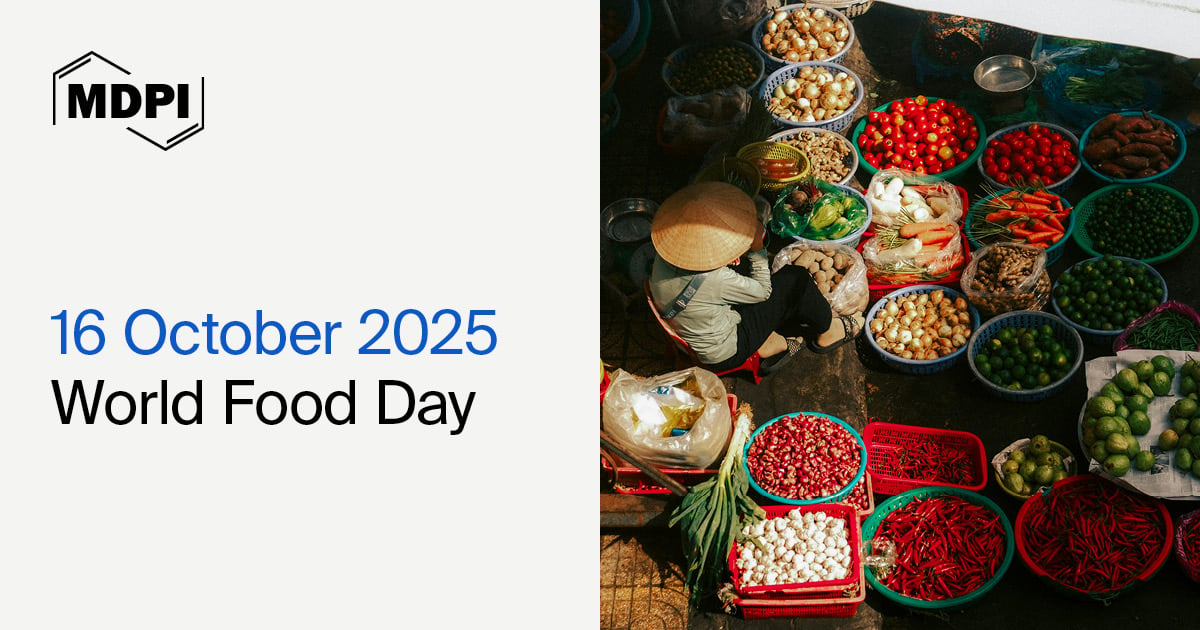
World Food Day commemorates the founding of the Food and Agriculture Organization (FAO) of the United Nations in 1945. This global observance unites researchers, policymakers, and communities to reflect on the vital role of food in human health, sustainability, and global development.
The 2025 theme calls for collective action to build a fairer, more sustainable, and resilient food system for all. From advancing sustainable agriculture and ensuring equitable food distribution to promoting nutritious diets and reducing food waste, the focus is on transforming the way we produce, consume, and share food—so that no one is left behind.
MDPI journals provide essential platforms for scientific dialogue and innovation in food research. Through a collection of articles, Special Issues, and reprints, we invite you to explore the latest findings shaping the future of food systems. Covering themes such as food safety and quality assurance, functional foods and probiotics, nutrition and public health, innovation and technology in food production, and the intersection of food security, climate, and social equity, these contributions foster global collaboration toward a healthier, more sustainable future.
Together, through research, innovation, and shared responsibility, we can build a world where food security and sustainability go hand in hand for better foods and a better future—nourishing both people and the planet.

|
Biology & Life Sciences |
Engineering |
|
Environmental & Earth Sciences |
|
|
|
|
Public Health & Healthcare |
|
|
Social Science, Art and Humanities |
|

“Prevalence and Antibiotic Resistance Profile of Clostridium perfringens Isolated from Pork and Chicken Meat in Vietnam”
by Hoang Minh Duc, Tran Thi Khanh Hoa, Cam Thi Thu Ha, Le Van Hung, Nguyen Van Thang, Hoang Minh Son and Gary A. Flory
Pathogens 2024, 13(5), 400; https://doi.org/10.3390/pathogens13050400
“Chromatographic Methods for the Determination of Glyphosate in Cereals Together with a Discussion of Its Occurrence, Accumulation, Fate, Degradation, and Regulatory Status”
by Maurizio Masci, Roberto Caproni and Teresina Nevigato
Methods Protoc. 2024, 7(3), 38; https://doi.org/10.3390/mps7030038
“Clostridium perfringens—Opportunistic Foodborne Pathogen, Its Diversity and Epidemiological Significance”
by Tomasz Grenda, Aleksandra Jarosz, Magdalena Sapała, Anna Grenda, Ewelina Patyra and Krzysztof Kwiatek
Pathogens 2023, 12(6), 768; https://doi.org/10.3390/pathogens12060768
“A Preliminary Investigation of Special Types of Honey Marketed in Morocco”
by Rania Mehdi, Saadia Zrira, Rossella Vadalà, Vincenzo Nava, Concetta Condurso, Nicola Cicero and Rosaria Costa
J. Exp. Theor. Anal. 2023, 1(1), 1-20; https://doi.org/10.3390/jeta1010001
Special Issues:
|
“Food Hygiene and Human Health” |
“Promotion of Food Safety and Functional Improvement Using Microorganisms” |

“Analysis of the Impact of the Addition of Alphitobius diaperinus Larval Powder on the Physicochemical, Textural, and Sensorial Properties of Shortbread Cookies”
by Sylwia Mierzejewska, Zdzisław Domiszewski, Joanna Piepiórka-Stepuk, Anna Bielicka, Arkadiusz Szpicer and Iwona Wojtasik-Kalinowska
Appl. Sci. 2025, 15(8), 4269; https://doi.org/10.3390/app15084269
“Antimicrobial Activity of Diffusible Substances Produced by Lactococcus lactis Against Bacillus cereus in a Non-Contact Co-Culture Model”
by Yuting Han, Adenike A. Akinsemolu, Christian K. Anumudu, Taghi Miri and Helen Onyeaka
Hygiene 2024, 4(4), 469-482; https://doi.org/10.3390/hygiene4040035
“Effect of Fermentation on the Nutritional Quality of the Selected Vegetables and Legumes and Their Health Effects”
by Eliza Knez, Kornelia Kadac-Czapska and Małgorzata Grembecka
Life 2023, 13(3), 655; https://doi.org/10.3390/life13030655
“Genetic and Phenotypic Characterization of Bacillus velezensis Strain BV379 for Human Probiotic Applications”
by Laura M. Brutscher, Sebhat Gebrechristos, Sean M. Garvey and Jessica L. Spears
Microorganisms 2024, 12(3), 436; https://doi.org/10.3390/microorganisms12030436
“Fatty Acid Composition of Pseudocereals and Seeds Used as Functional Food Ingredients”
by Małgorzata Czerwonka and Agnieszka Białek
Life 2023, 13(1), 217; https://doi.org/10.3390/life13010217
Special Issues:
|
“Advances in Food Metabolomics for Functional Food Development and Analysis” |
“Functional Foods and Metabolic Health” |

“Industrial Production of Functional Foods for Human Health and Sustainability”
by Xinrui Yuan, Moyu Zhong, Xinxin Huang, Zahid Hussain, Maozhi Ren and Xiulan Xie
Foods 2024, 13(22), 3546; https://doi.org/10.3390/foods13223546
“Knowledge, Attitude, and Practices of Food Hygiene among Mothers from Rural Communities in Malawi”
by Vitowe Batch, Martina Kress, Ezekiel Luhanga, Maurice Monjerezi, Daniel Pfaff, Horace Phiri, Aggrey Pemba Gama, Kelvin Chomanika, Anja Schmidt, Bianca Duelken et al.
Hygiene 2024, 4(3), 361-373; https://doi.org/10.3390/hygiene4030028
“Mindful Eating Approaches to Cardiometabolic Risk Factors: Systematic Review and Meta-Analysis of Intervention Studies”
by Paola Iaccarino Idelson, Lanfranco D’Elia and Pasquale Strazzullo
Dietetics 2024, 3(3), 271-288; https://doi.org/10.3390/dietetics3030022
“Common Nutritional Shortcomings in Vegetarians and Vegans”
by Joshua Gibbs and Francesco P. Cappuccio
Dietetics 2024, 3(2), 114-128; https://doi.org/10.3390/dietetics3020010
Special Issues:
|
“The Nutritional Implications and Future Prospects of Gluten-Free Diets Beyond Celiac Disease”
|
“Agroecology and Conscious Food Systems for Flourishing of People, Places, and Planet” |

“Storage Profiling: Evaluating the Effect of Modified Atmosphere Packaging on Metabolomic Changes of Strawberries (Fragaria × ananassa)”
by Johannes Brockelt, Robin Dammann, Jennifer Griese, Agnes Weiss, Markus Fischer and Marina Creydt
Metabolites 2025, 15(5), 330; https://doi.org/10.3390/metabo15050330
“Measuring the Effects of an Anti-Food-Waste Digital Application from the Operators’ Perspective in Urban Contexts”
by Alexandra Lagorio and Giulio Mangano
Urban Sci. 2024, 8(2), 57; https://doi.org/10.3390/urbansci8020057
“The Application of Artificial Intelligence and Big Data in the Food Industry”
by Haohan Ding, Jiawei Tian, Wei Yu, David I. Wilson, Brent R. Young, Xiaohui Cui, Xing Xin, Zhenyu Wang and Wei Li
Foods 2023, 12(24), 4511; https://doi.org/10.3390/foods12244511
Special Issues:
|
“Agri-Food Wastes as Natural Source of Bioactive Antioxidants: Fourth Edition” |
“Innovative Soil Amendments for Food Security: Biochar, Nanoparticles and Waste Valorization” |

“Regenerative Organic Agriculture and Human Health: The Interconnection Between Soil, Food Quality, and Nutrition”
by Giulia Feliziani, Laura Bordoni and Rosita Gabbianelli
Antioxidants 2025, 14(5), 530; https://doi.org/10.3390/antiox14050530
“Climate Change Impacts on Household Food Security in Sri Lanka’s Dry Zones: A Qualitative Analysis”
by Sisira Kumara Naradda Gamage, Solanga Arachchige U. Niranjala, Jayasooriya Mudiyanselage Harshana M. Upulwehera, Allayarov Piratdin, Kumara Bandage Thilini Udesha K. Bandara, Hatharakorale Gedara Kolitha N. Bandara, Hetti Arachchige Buddhika W. Hettiarachchi, Adikari Mudiyanselage P. Adikari, Sumanapalage D. Amasha Sumanapala, Manamendra K. Nilakshi Pabasara et al.
Challenges 2025, 16(2), 20; https://doi.org/10.3390/challe16020020
“Multiresource Pastoralism, Dynamic Foodways, and Ancient Statecraft in Mongolia”
by William Honeychurch, Chunag Amartuvshin, Joshua Wright, Christina Carolus and Michelle Hrivnyak
Land 2023, 12(9), 1715; https://doi.org/10.3390/land12091715
“Multidimensional Role of Agrovoltaics in Era of EU Green Deal: Current Status and Analysis of Water–Energy–Food–Land Dependencies”
by Aikaterini Roxani, Athanasios Zisos, Georgia-Konstantina Sakki and Andreas Efstratiadis
Land 2023, 12(5), 1069; https://doi.org/10.3390/land12051069
Special Issues:
|
“The Past and the Present of Food Sustainability and Resilience of Local Food Production: 2nd Edition” |
“Sustainable Agriculture for Food and Nutrition Security: 2nd Edition” |

|
|
VI International Congress la ValSe-Food |
15 October 2025
MDPI’s Newly Launched Journals in September 2025

Nine new journals covering a range of subjects launched their inaugural issues in September 2025. We are excited to be able to share with you the newest research rooted in the value of open access.
We extend our sincere thanks to all Editorial Board Members for their commitment and expertise. Each journal is dedicated to upholding strong editorial standards through a thorough peer review process, ensuring impactful open access scholarship.
Please feel free to browse and discover more about the new journals below.
|
Journal |
Founding Editor-in-Chief |
Journal Topics (Selected) |
|
|
Prof. Dr. Joseph G. Grzywacz, San José State University, USA |
family formation and dynamics; family relationships; family diversity and structure; family processes; family challenges; global perspectives of family | |
|
|
Prof. Dr. Chengkuo Lee, National University of Singapore, Singapore |
AIoT sensing technologies; distributed AI and federated learning; AI-enhanced edge analytics; sensor fusion in edge computing; low-power AI sensing; security and privacy in edge-AI systems; AI-driven optimization of IoT networks | |
|
|
Prof. Dr. Steven Paul Nistico, Sapienza University of Rome, Italy |
aesthetics; reconstructive surgery and plastic surgery; dermatology; oral and maxillofacial surgery; surgical procedures; non-surgical procedures | |
|
|
Prof. Dr. Mauro Tonelli, University of Pisa, Italy |
plasma physics and technology; atomic and molecular physics; nuclear physics; quantum physics and technology; dielectrics, ferroelectrics, and multiferroics; semiconductor physics and devices; engineering physics; material physics; biophysics| |
|
|
Prof. Dr. Sergej M. Ostojic, University of Agder, Norway; |
biochemical research methods; biochemistry and molecular biology; cell biology; clinical and medicinal chemistry; clinical neurology; endocrinology and metabolism; medicine, general and internal; nutrition and dietetics; toxicology | |
|
|
Prof. Dr. Michele Nappi, University of Salerno, Italy |
foundations and advancements in multimedia technologies; computational social media analytics; human–AI interaction in social contexts; multimedia understanding and generation for social insight; ethics, fairness, and privacy in multimedia systems | |
|
|
Prof. Dr. Philippe Gorce, Toulon University, France |
ergonomic design and evaluation of workspaces, tools, and equipment; biomechanical analysis and ergonomic interventions for musculoskeletal health; cognitive workload assessment and management; human-computer interaction (HCI) and user experience (UX) research; ergonomic wearables; AI-driven ergonomic assessment tools; neuroergonomics | |
|
|
Prof. Dr. Ronald Charles Sims, Utah State University, USA |
bioresources; bioproducts; bioenergy and biofuels; environmental protection; public health protection; biological waste treatment; biomass transformation; circular bioeconomy; bio-based materials and chemicals; bioresidues | |
|
|
Prof. Dr. M. Jamal Deen, McMaster University, Canada |
device design and engineering; circuit design and system integration; applications and emerging technologies; materials and fabrication innovations; testing, reliability, and standards | |
We would like to thank everyone who has supported the development of open access publishing. If you would like to create more new journals, you are welcome to send an application here, or contact the New Journal Committee (newjournal-committee@mdpi.com).
2 October 2025
MDPI INSIGHTS: The CEO's Letter #27 - OASPA 2025, COUNTER 5.1, UK Summit in London, MDPI at the Italian Senate

Welcome to the MDPI Insights: The CEO's Letter.
In these monthly letters, I will showcase two key aspects of our work at MDPI: our commitment to empowering researchers and our determination to facilitating open scientific exchange.
Opening Thoughts


MDPI at OASPA 2025: Embracing the Complexity of Open Access
From 22 to 24 September, I joined the OASPA 2025 Annual Conference in Leuven, Belgium, where the theme, “Embracing the Complexity – How do we get to 100% Open Access?” tackled the hard questions about the future of scholarly communication.
With MDPI a longstanding member of the Open Access Scholarly Publishing Association (OASPA) and Platinum sponsor of the conference, I was invited to present and participate in important discussions on how we can continue to move the needle in Open Access (OA) publishing.
From 50% to 100% Open Access
Last year’s OASPA conference celebrated a major milestone – reaching 50% of global research outputs published as OA. But, as noted during the conference, this was the “easy” part. The challenge ahead is much tougher: how do we take OA from 50% to 100%? For many academics and institutions, OA is still relatively new, and thus it is essential for us to continue educating people as to what OA is, how it works, and why it matters.

Stefan Tochev (CEO, MDPI) presenting at OASPA’s 2025 Annual Conference in Leuven, Belgium.
MDPI’s perspective
At MDPI, we are fully committed to this. As a 100% OA publisher, our growth is inseparable from the success of OA itself. In many ways, MDPI is a byproduct of the global adoption of OA, and we play an important role in helping to advance it further.
I had the opportunity to share MDPI’s perspective in the panel discussion entitled: "Hello from the other side: views from fully Open Access journals using APCs," alongside industry colleagues from PLOS, eLife, AOSIS, and Frontiers.
Instead of giving a standard presentation, I highlighted aspects of MDPI that the audience might not be aware of. I also presented on the opportunities and challenges facing publishers that are already fully OA, the importance of diverse models in achieving 100% OA, and why OA is the baseline while Open Science is the future.
Recognizing Gold OA
As part of the panel, I had undertaken to make some bold and provocative statements. I therefore emphasized a point that is sometimes overlooked: we didn’t reach 50% OA without Gold OA – it accounts for more than half of all OA publications today. And we certainly won’t reach 100% OA without it.
“By educating the community and working together, we can continue to take Open Science to the next level”

“When people speak about Gold OA and MDPI, they should ‘put some respek on our name.”
MDPI is a leader in Gold OA and has been a driver of this progress at scale.
While Gold OA and MDPI are sometimes slighted, both deserve recognition for their contributions to advancing Open Science globally.
I closed my presentation with a reminder that the good we do is sometimes overlooked, and that when people speak about Gold OA and MDPI, they should "put some respek on our name."
I’m pleased to have seen attendees sharing positive experiences with MDPI, reminding us that we bring real value to the OA movement and deserve a stronger reputation. We also engaged in constructive conversations about various topics, including cost transparency.
A few themes that I took away from the conference:
- Quality and integrity matter as much as access. OA publishers must not lose sight of research integrity, inclusivity, and sustainability while pursuing 100% OA.
- Global collaboration is essential. Policies, funding models, and infrastructure differ around the world, and we will need cross-border collaboration to make OA a truly global reality.
- Open Science is the bigger story. OA is just the first step – the future lies in open data, open peer review, research reproducibility, etc.
“MDPI’s scale allows us to better support authors, reinvest in communities, and push Open Science forward”
How we communicate MDPI’s role
For us at MDPI, this is also a reminder of how we communicate externally. When we tell our story, we shouldn’t forget to start with the bigger picture – Open Science and Open Access. Then we connect it to MDPI, our journals, services, and initiatives, exemplifying the fact that we are part of a mission larger than ourselves.

MDPI colleagues Clàudia Aunós (Society Partnerships), Marta Colomer (External Affairs), Stefan Tochev (CEO), and Nikola Paunovic (Scilit), at OASPA’s 2025 Annual Conference in Leuven, Belgium.
The journey to 100% OA will not be simple. But by educating the community and working together, we can continue to take Open Science to the next level.
Impactful Research

MDPI becomes COUNTER 5.1 compliant across 480+ Journals
I’m pleased to share that MDPI has officially become COUNTER 5.1 compliant and has joined the COUNTER Registry.
For those who might not be familiar with it, COUNTER provides international standards for tracking and reporting how research is being used. By becoming COUNTER 5.1 compliant, MDPI can now deliver credible, comparable, and transparent usage reports across our entire journal portfolio.
“MDPI is showing that they want to be measured against the same yardstick as other publishers”
Why is this important?
Because usage statistics aren’t just numbers: they’re powerful tools that help our authors, institutions, and consortia understand the real impact of their research. With COUNTER compliant reports, our institutional partners can now make more informed decisions about publishing agreements, funding allocations, and the long-term value of Open Access.
In practical terms, MDPI will now provide Platform, Title, and Item Reports, with standardized usage views available at the institute and consortium level. These reports cover usage from January 2024 onwards and will be updated monthly. Institutions will be able to access them via SuSy, or automatically through the COUNTER API.

I’d like to highlight and thank Becky Castellon, our Institutional Partnerships Manager, who has played a key role in driving this project forward. Becky captured it perfectly when she said: "Through these usage reports, our global research community can access trustworthy data about how their work is being used and accessed
This information is often vital for reviewing publishing partnership agreements and for making informed decisions about future funding allocations."
We also received encouraging feedback from Tasha Mellins-Cohen, Executive Director at COUNTER Metrics:
"We’re delighted to see born-OA publishers engaging with COUNTER. Our normalised usage metrics are relied on as the basis for credible return-on-investment calculations by libraries worldwide. By adopting the COUNTER standard, MDPI is showing that they want to be measured against the same yardstick as other publishers."
For MDPI, this milestone is another step in our commitment to transparency, trust, and impact. By adopting COUNTER’s standards, we’re not just aligning with best practice; we’re ensuring that Open Access publishing is measured on the same terms as traditional publishing, proving its value in concrete and globally recognized ways.
This is an important milestone for MDPI, but more importantly for the researchers, librarians, and institutions we serve. Transparency builds trust, and COUNTER compliance helps us show the global reach and influence of Open Access publishing in the clearest way possible.
Inside Research

Lin Li (Publisher, MDPI), Stefan Tochev (CEO, MDPI, Prof. Chengkuo Lee (Editor-in-Chief, AI Sensors), and Constanze Schelhorn (Head of Indexing) at restaurant in Basel, Switzerland.
Welcoming Prof. Lee (EiC of AI Sensors) to Basel
On 11 September, we welcomed Prof. Dr. Chengkuo Lee, Editor-in-Chief of our new journal AI Sensors, to our Basel office. Prof. Lee is a high profiled researcher (h-index 104, 37,000+ citations), a longtime collaborator with MDPI (25 published articles), and has already chaired several AI Sensors (AIS)-related conferences with us, including the recent event in Kuala Lumpur, where AI Sensors held its first editorial board meeting.

Stefan Tochev (CEO, MDPI) showing Special Issue reprint books as part of a tour of MDPI’s Basel office.
Every journal has a story
During his visit, we exchanged ideas on how to build the journal’s identity and impact. A key takeaway that I shared was that every journal has a story: its vision, its purpose, and the community it brings together.
That story is what connects with readers and authors, beyond metrics alone.
I encouraged everyone working on journals to reflect: What is the story of your journal? And how can you bring that story to the forefront in how you communicate about it?
How MDPI supports new journals

Constanze Schelhorn (Head of Indexing, MDPI) presenting on the MDPI indexing process at the company’s headquarters in Basel.
We also shared with Prof. Lee how MDPI supports journals through our Institutional Open Access Program, indexing expertise, and the work of our Journal Relationship Specialists.
Launching a new journal is ambitious, but with our strong track record (93% Scopus and 87% Web of Science acceptance rates in 2024), Prof. Lee felt confident that AI Sensors will find its place in the scholarly landscape.
Having spent some hours together, it’s clear that Prof. Lee is not only an Editor-in-Chief but also an ambassador for MDPI. His leadership and collaboration reflect the mission MDPI by which MDPI lives: accelerating Open Access and advancing Open Science.
Special thanks to Constanze Schelhorn (Head of Indexing), Ting Leng (JRS, Managing Editor, AI Sensors), Lin Li (Publisher, AI Sensors), Aimar Xiong (Publisher), and Christian Eberhard (Office Administrator, Basel), for organizing and hosting the meeting.
Coming Together for Science

Highlights from the MDPI UK Summit in London
I was pleased to be back in the UK in September, supporting our Manchester team in hosting their first MDPI Summit in London. This day-and-a-half private event brought together 25 Chief Editors and Associate Editors to exchange knowledge, learn about latest developments at MDPI, and engage in discussions on advancing Open Science. The program included MDPI and guest presentations, and Q&A sessions.
Why these summits matter
Our Summits provide a platform to:
- Share updates on the latest developments at MDPI, our editorial processes, research integrity practices, and indexing.
- Highlight collaborations with institutions and societies in the region.
- Offer external perspectives from guest speakers.
- Create space for Chief Editors to share their insights, ask questions, network, and help shape MDPI’s path forward.
These gatherings are more than updates: they improve our relationships with Chief Editors, who serve not only as leaders of their journals but also as ambassadors for MDPI within the research community. We often hear that this type of event is unique, something many other publishers do not provide. It shows that we care and are willing to go the extra mile to recognize and engage our key collaborators.
|
|
|
|
MDPI and the UK: Key facts
- With over 80,000 publications, the UK is MDPI’s eighth-largest contributor.
- MDPI is the fourth-largest publisher in the UK, accounting for 11% of the country’s 89,526 Open Access publications in 2024.
- We collaborate with more than 4,000 active UK Editorial Board Members, 48% of whom have an H-index above 26. This includes 49 Editors-in-Chief and 74 Section Editors-in-Chief.
- MDPI maintains over 1,000 IOAP agreements worldwide, with 63 from the UK.
“We are willing to go the extra mile to recognize and engage our key collaborators”
|
|
|
|
|
|
|
|
Agenda highlights:
- MDPI Overview, Open Access, and UK Collaboration – Stefan Tochev (CEO, MDPI)
- MDPI Editorial Process – Dr. Michael O’Sullivan (Scientific Quality Advisor Lead, MDPI)
- Research Integrity and Publication Ethics – Daisy Fenton (Research Integrity Specialist, MDPI)
- Institutional Partnerships – Becky Castellon (Institutional Partnerships Manager, MDPI)
- Promoting and Developing Your Journal – Prof. Fabio Tosti (Editor-in-Chief of NDT)
- Indexing to Impact – Dr. Michael O’Sullivan (Scientific Quality Advisor Lead, MDPI)
- Engaging our Academic Community – Jaime Anderson Anderson (UK Operations Manager, MDPI)
- Closing Remarks – Stefan Tochev (CEO, MDPI)

MDPI colleagues Stefan Tochev (CEO), Jaime Anderson Anderson (UK Operations Manager), Dr. Michael O’Sullivan (Scientific Quality Advisor Lead), Becky Castellon (Institutional Partnerships Manager), Daisy Fenton (Research Integrity Specialist) at the MDPI UK 2025 Summit in London.
Thank you!
A special thank-you to the Manchester team and all colleagues behind the scenes who made this Summit a success. Your efforts are greatly appreciated. We look forward to building on this momentum with future Summits in Europe and beyond.
Closing Thoughts

Dr. Giulia Stefenelli (Scientific Communications Lead, MDPI) and Stefan Tochev (CEO, MDPI) participating in a press conference at the Italiane Senate in Rome to promote the 2nd International Conference on Environmental Medicine (ICEM)
MDPI at the Italian Senate: Promoting Environmental Medicine and Open Science
On 16 September, Dr. Giulia Stefenelli (Scientific Communications Lead) and I had the honour of participating in a press conference at the Italian Senate in Rome, organized by the Italian Society of Environmental Medicine (SIMA) to promote the upcoming 2nd International Conference on Environmental Medicine (ICEM) (20–21 November 2025).
This is an important event for MDPI, as we are the exclusive publishing partner for ICEM and have recently launched a new journal with SIMA, further building our presence both in Italy and within this important field of research.
Why this matters
- The promotion of ICEM has received extensive national media coverage (more than 15 mentions in major Italian outlets; see links below).
- The press conference brought together leading policymakers, academics, and Nobel Laureates to emphasize the impact of environmental exposures and epigenetics on human health.
- We were introduced to government ministries, university rectors, and influential stakeholders, which helps us bolster MDPI’s visibility and reputation in Italy.
Highlights
Nobel Laureate Sir Richard Roberts joined the discussion, underlining the importance of environmental medicine in shaping future health outcomes. Nobel Laureate Prof. Dr. Tong Zhu (Peking University) will also speak at the November conference.
Institutional representatives included the Italian Minister of the Environment and Energy Security, the Italian Undersecretary for Health, and senior officials from the World Health Organization.
In my closing remarks, I highlighted that:
“Over the past five years, about 65% of research published in Italy has been Open Access, compared to an average of 55% worldwide.”
Italian research ranked seventh among the top 20 countries in average citations during this period, reflecting its strong international influence. Not only is Italy producing a high volume of research; it is also producing research of outstanding quality.
MDPI’s role
This event was not only about promoting ICEM but also about showcasing MDPI’s commitment to Open Access and our ability to connect scientific publishing with leading academic, medical, and policy institutions.
As Giulia Stefenelli noted:
“This event was highly relevant for MDPI, as it not only showcased our strong commitment to OA but also emphasized our role in advancing important fields such as Environmental Medicine.”
Learn more
- Watch the full press conference (Radio Radicale)
- Giulia’s speech: 33:20 (in Italian)
- Stefan’s speech: 57:50 (in English)
- ICEM 2025 Conference Program
- Selected media coverage:
This moment at the Italian Senate shows how MDPI can connect publishing with science, policy, and society to help advance both Open Science and environmental health research on a global stage.
|
|
|
In Rome with Sir Richard Roberts (photo left) and Prof. Giuseppe Novelli (EiC of MDPI journal COVID).
Chief Executive Officer
MDPI AG
30 September 2025
Nobel Prize — The Science Behind the Prize
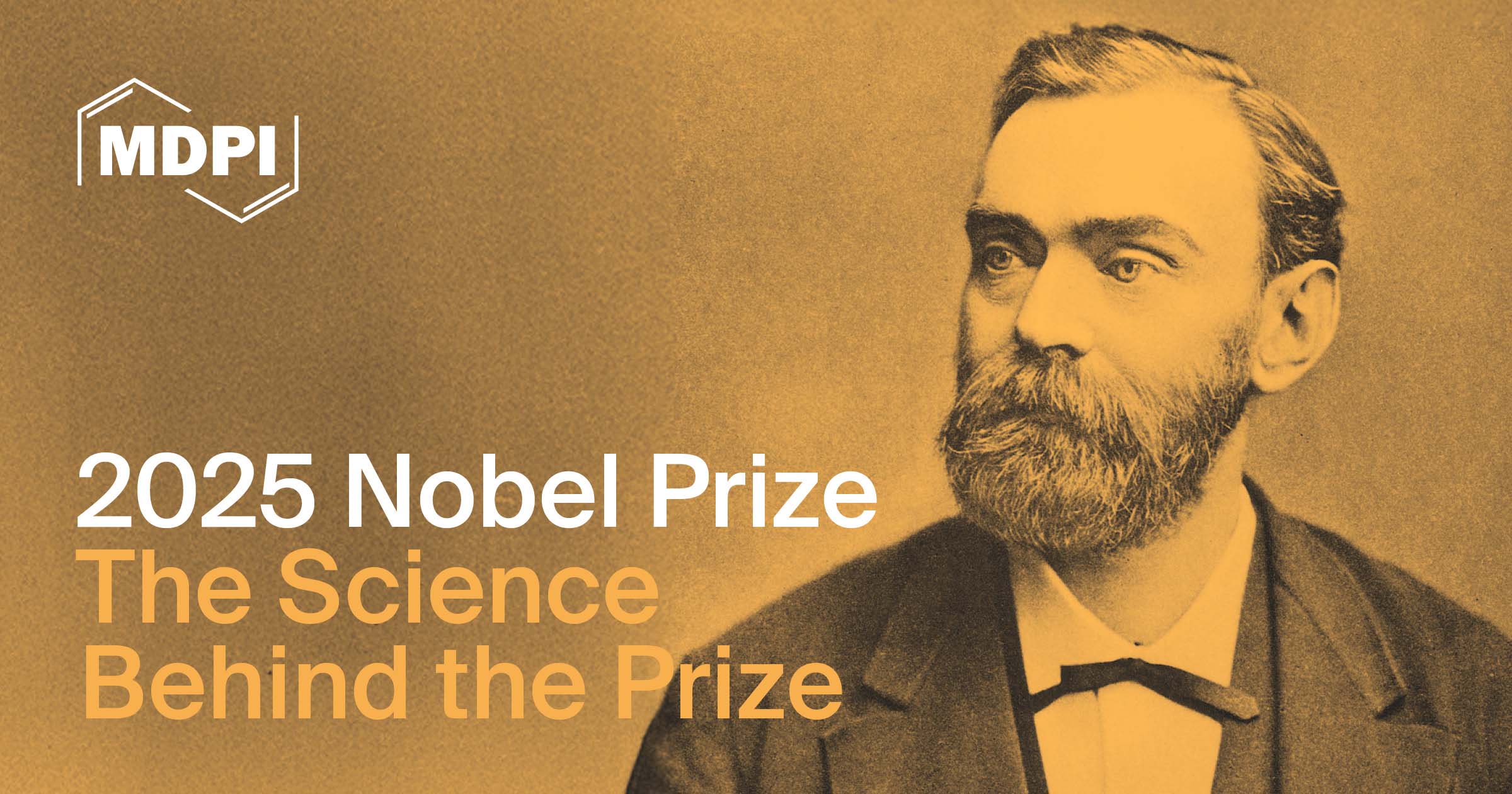
Nobel Prizes are the world’s most prestigious recognition of scientific breakthroughs, honoring discoveries that push the boundaries of knowledge and reshape entire fields. They bring into the public eye researchers whose work might otherwise remain known only within specialized circles.
For many, winning a Nobel Prize is a surreal experience. Laureates often describe a mix of joy, humility, reflection, and gratitude for the teams and collaborators whose contributions made the achievement possible. Behind every Nobel-winning idea lies years of careful, incremental work—a process that often goes unseen.
When Prof. Steven Weinberg won the Nobel Prize in Physics in October 1979, his wife Louise, a legal scholar, reminded him to keep doing the ordinary hard work of science, joking: “Now you have to write some unimportant papers.” True to form, Weinberg continued to push the boundaries of our understanding of the Universe, showing that curiosity and dedication extend far beyond the moment of recognition (Hofmann 2025: https://www.mdpi.com/2073-8994/17/6/840).
Discover the science behind the world’s most transformative ideas
Over the years, dozens of Nobel laureates have published their work with MDPI, entrusting our open access journals to disseminate their findings to a global audience. As of 2024, more than 40 laureates have contributed over 115 articles across 35 journals, ranging from pioneering research on microRNAs and mRNA therapeutics, to fundamental insights in theoretical physics, and advances in structural biology.
We regularly spotlight how Nobel Prize–winning research intersects with the contributions of our authors. This not only celebrates the achievements of the laureates, but also underscores the role of open access in ensuring that transformative science reaches the widest possible audience.
On this page, we invite you to explore selected works by Nobel laureates within the MDPI portfolio, and to join us in celebrating the global impact of their ideas.

The Nobel Prize in Physiology or Medicine 2025 has been awarded to Mary E. Brunkow, Fred Ramsdell, and Shimon Sakaguchi for for their discoveries concerning peripheral immune tolerance. MDPI sincerely invites you to explore research in a related field.

The Science Behind the Prize: 2025 Nobel Physiology or Medicine Roundtable
6 October 2025, 03:30 pm (CEST)
You are welcome to watch the recording here!
The Nobel Prize in Physics 2025 has been awarded to John Clarke, Michel H. Devoret and John M. Martinis for the discovery of macroscopic quantum mechanical tunnelling and energy quantisation in an electric circuit. MDPI sincerely invites you to explore research in a related field.

The Science Behind the Prize: 2025 Nobel Physics Roundtable
7 October 2025, 02:30 pm (CEST)
You are welcome to watch the recording here!

The Nobel Prize in Chemistry 2025 has been awarded to Susumu Kitagawa, Richard Robson and Omar M. Yaghi for the development of metal-organic frameworks. MDPI sincerely invites you to explore research in a related field.
30 September 2025
World Animal Day—“Save Animals, Save the Planet!”, 4 October 2025
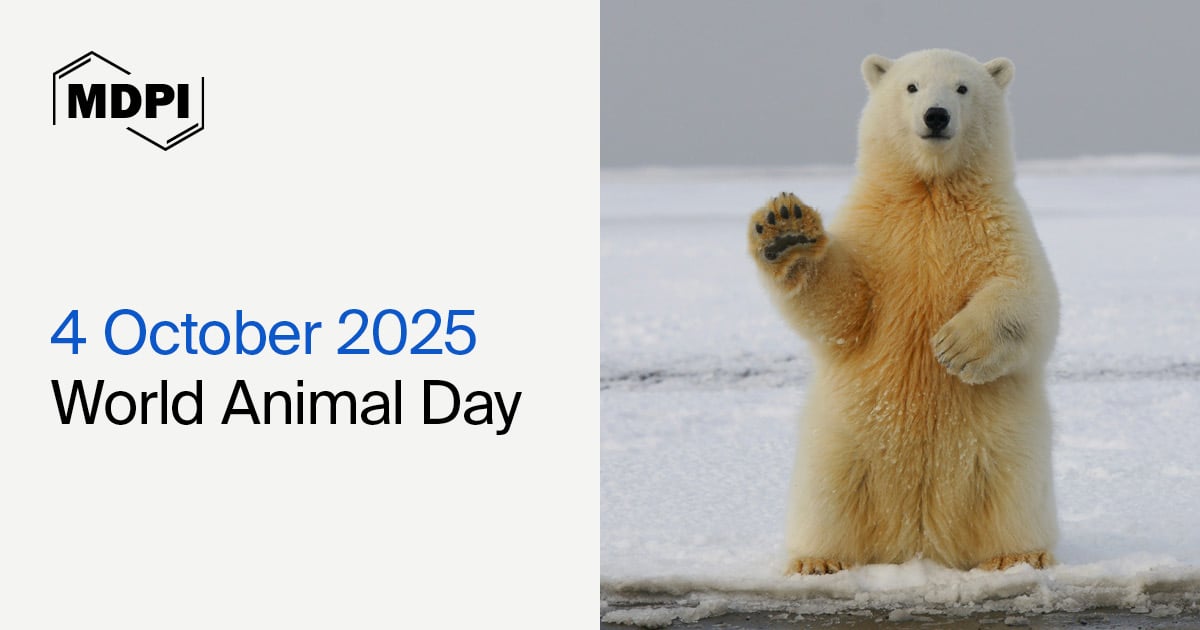
World Animal Day, which will be celebrated on 4 October, is a day that serves as a catalyst for the animal welfare movement, mobilizing it into a global force to make the world a better place for all animals by raising awareness and taking action for their well-being.
This year’s theme—“Save Animals, Save the Planet!”—draws attention to the connection between animal and environmental welfare. From biodiversity loss and habitat destruction to industrial farming and pollution, the ways we treat animals have a direct impact on the planet’s health, and vice versa. The conservation of animal species can aid in the preservation of their environment, and we must commit to the protection of both.
In recognition of World Animal Day, MDPI supports global efforts in conservation of animal life and consequently, the planet. Through open access publishing, we invite you to explore selected articles, Special Issues, and journals that span fields such as animal sciences, biology, and ecology, encouraging knowledge-sharing and collaboration with the aim of making a difference in animal welfare.

| Biology & Life Science | ● Metabolites; | Environment & Earth Sciences |
| ● Arthropoda; | ● Pets; | ● Conservation; |
| ● Animals; | ● Poultry; | ● Diversity; |
| ● Biology; | ● Ruminants; | ● Ecologies; |
| ● Birds; | ● Taxonomy; | ● Sustainability. |
| ● Fishes; | ● Veterinary Sciences; | |
| ● Insects; | ● Wild. | |
| ● JZBG; |


|
Keynote Speakers: |
||
 |
 |
 |
|
Prof. Lynne U. Sneddon, |
Dr. Subir Sarker, |
Prof. Dr. Paulo A.V. Borges, |
Free to register for this webinar here!

“Fragmented Habitats, Fragmented Functions: Unveiling the Role of Habitat Structure in Andean Bird Communities”
by Valentina Ramos-Mosquera, Edwin López-Delgado and Miguel Moreno-Palacios
Ecologies 2025, 6(3), 52; https://doi.org/10.3390/ecologies6030052
“Assessing Habitat Suitability and Overlap for South China Sika Deer and Sympatric Ungulates”
by Jing Zhang, Yankuo Li, Zhaoyang Wang, Guangyao Wang, Shizhao He, Yu Zheng and Chunlin Li
Ecologies 2025, 6(2), 41; https://doi.org/10.3390/ecologies6020041
“Monarch Butterflies in Western North America: A Holistic Review of Population Trends, Ecology, Stressors, Resilience and Adaptation”
by David G. James
Insects 2024, 15(1), 40; https://doi.org/10.3390/insects15010040
“Cetaceans in the Mediterranean Sea: Encounter Rate, Dominant Species, and Diversity Hotspots”
by Guido Gnone, Michela Bellingeri, Sabina Airoldi, Joan Gonzalvo, Léa David, Nathalie Di-Méglio,
Ana M. Cañadas, Aylin Akkaya, Tim Awbery, Barbara Mussi et al.
Diversity 2023, 15(3), 321; https://doi.org/10.3390/d15030321
Special Issues:
| “Ecology, Diversity and Conservation of Butterflies” Guest Editor: Dr. Marcin Sielezniew Submission deadline: 28 February 2026 |
“Conservation and Ecology of Polymorphic Animal Populations” Guest Editors: Prof. Dr. Luca Luiselli and Dr. Massimiliano Di Vittorio Submission deadline: 31 May 2026 |
 |
 |

“The Impacts of Traffic Intensity on Taxonomic and Functional Diversity in Understory Spiders from the Brazilian Atlantic Forest”
by Rebeca Esther Da Justa Ximenes, Matheus Leonydas Borba Feitosa, Nancy Lo-Man-Hung, Hugo Rodrigo Barbosa-da-Silva, André Otávio Silva-Junior, Alysson Henrique Alcântara Lins, Geraldo Jorge Barbosa de Moura and André Felipe de Araújo Lira
Arthropoda 2025, 3(2), 7; https://doi.org/10.3390/arthropoda3020007
“Anthropogenic Impact and Antimicrobial Resistance Occurrence in South American Wild Animals: A Systematic Review and Meta-Analysis”
by Manuel Pérez Maldonado, Constanza Urzúa-Encina, Naomi Ariyama and Patricio Retamal
Wild 2025, 2(2), 14; https://doi.org/10.3390/wild2020014
“The Evolution of Zoos as Conservation Institutions: A Summary of the Transition from Menageries to Zoological Gardens and Parallel Improvement of Mammalian Welfare Management”
by Haley N. Beer, Trenton C. Shrader, Ty B. Schidt and Dustin T. Yates
J. Zool. Bot. Gard. 2023, 4(4), 648–664; https://doi.org/10.3390/jzbg4040046
“The Hell of Wildfires: The Impact on Wildlife and Its Conservation and the Role of the Veterinarian”
by Andreia Garcês and Isabel Pires
Conservation 2023, 3(1), 96–108; https://doi.org/10.3390/conservation3010009
“Spatiotemporal Patterns of Wolves, and Sympatric Predators and Prey Relative to Human Disturbance in Northwestern Greece”
by Maria Petridou, John F. Benson, Olivier Gimenez and Vassiliki Kati
Diversity 2023, 15(2), 184; https://doi.org/10.3390/d15020184
Special Issues:
| “Conflict and Coexistence Between Humans and Wildlife” Guest Editor: Prof. Dr. Li Zhang Submission deadline: 31 March 2026 |
“The Future of Marine Megafauna” Guest Editors: Prof. Dr. Vincent L. Bels and Prof. Dr. John R. Turner Submission deadline: 31 July 2026 |
 |
 |

“Intervertebral Disc Disease in Dogs”
by Iván Gómez Álvarez, José Manuel Verdes García and Luciano Espino López
Pets 2025, 2(3), 26; https://doi.org/10.3390/pets2030026
“Dairy Farmers and Veterinarians’ Agreement on Communication in Udder Health Consulting”
by Michael Farre, Erik Rattenborg, Henk Hogeveen, Volker Krömker and Carsten Thure Kirkeby
Vet. Sci 2024, 11(12), 665; https://doi.org/10.3390/vetsci11120665
“Behavioral, Physiological and Hormonal Changes in Primiparous and Multiparous Goats and Their Kids During Peripartum”
by Paolo Cano-Suarez, Juan Pablo Damian, Rosalba Soto, Karen Ayala, Joob Zaragoza, Rocio Ibarra,
Jesús Jonathan Ramírez-Espinosa, Laura Castillo, Irma Eugenia Candanosa Aranda and Angélica Terrazas
Ruminants 2024, 4(4), 515–532; https://doi.org/10.3390/ruminants4040036
“Highly Pathogenic Avian Influenza (HPAI) H5 Clade 2.3.4.4b Virus Infection in Birds and Mammals”
by Giulia Graziosi, Caterina Lupini, Elena Catelli and Silvia Carnaccini
Animals 2024, 14(9), 1372; https://doi.org/10.3390/ani14091372
Special Issues:
| “Emerging Models in Veterinary and Comparative Pathology” Guest Editors: Dr. Karen Power and Prof. Dr. Gionata De Vico Submission deadline: 15 December 2025 |
“Advancements in Animal Reproductive Biotechnology: Protecting the Future of Endangered Wildlife Species and Domestic Breeds” Guest Editors: Dr. Amin Sayyari and Prof. Dr. Ian Mayer Submission deadline: 31 December 2025 |
 |
 |
| “Veterinary Science in Action: How Zoo and Aquarium Animals Are Diagnosed and Cured” Guest Editors: Dr. Carlos Sánchez, Dr. Richard Sim and Dr. Josie Rose Submission deadline: 30 June 2026 |
“Advances in Infectious and Parasitic Diseases of Animals” |
 |
 |

“A Poorly Known Catfish Clade in an Endangered Neotropical Biodiversity Hotspot: Relationships and Distribution Patterns of the Cambeva variegata Group (Siluriformes: Trichomycteridae)”
by Wilson J. E. M. Costa, José Leonardo O. Mattos, Valter M. Azevedo-Santos, Caio R. M. Feltrin, Pedro F. Amorim, Felipe P. Ottoni, Paulo J. Vilardo and Axel M. Katz
Fishes 2024, 9(4), 116; https://doi.org/10.3390/fishes9040116
“Description of Bisbalus, a New Genus for the Gray Brocket, Mazama cita Osgood, 1912 (Mammalia, Cervidae), as a Step to Solve the Neotropical Deer Puzzle”
by Eluzai Dinai Pinto Sandoval, Wlodzimierz J˛edrzejewski, Jesús Molinari, Miluse Vozdova, Halina Cernohorska, Svatava Kubickova, Agda Maria Bernegossi, Renato Caparroz and José Mauricio Barbanti Duarte
Taxonomy 2024, 4(1), 10–26; https://doi.org/10.3390/taxonomy4010002
“Searching for a Home Port in a Polyvectic World: Molecular Analysis and Global Biogeography of the Marine Worm Polydora hoplura (Annelida: Spionidae)”
by Vasily I. Radashevsky, Vasily V. Malyar, Victoria V. Pankova, Jin-Woo Choi, Seungshic Yum and James T. Carlton
Biology 2023, 12(6), 780; https://doi.org/10.3390/biology12060780

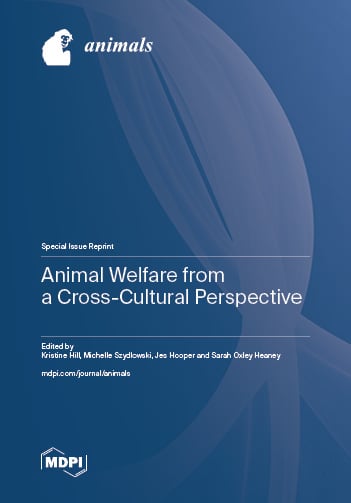 |
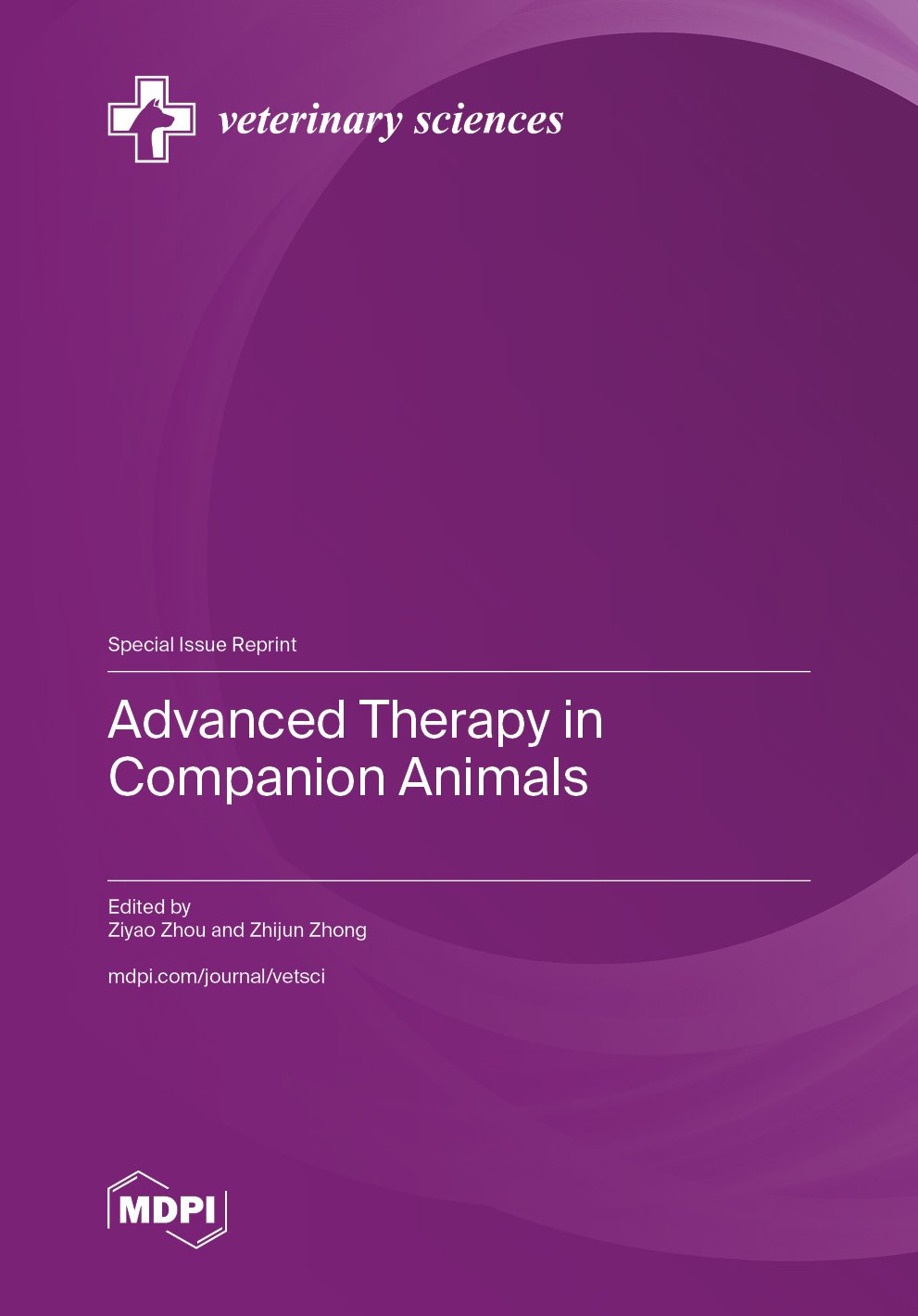 |
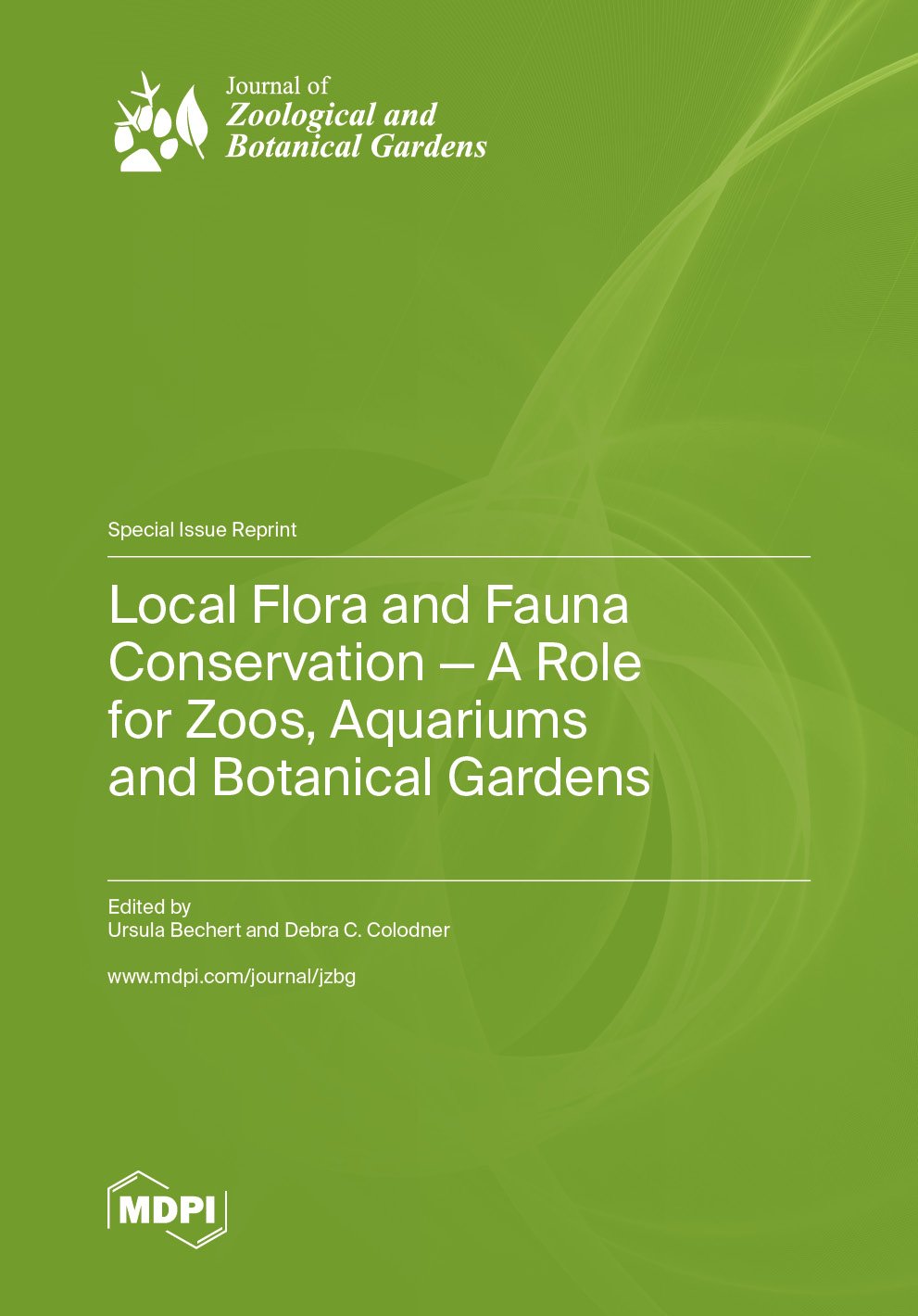 |
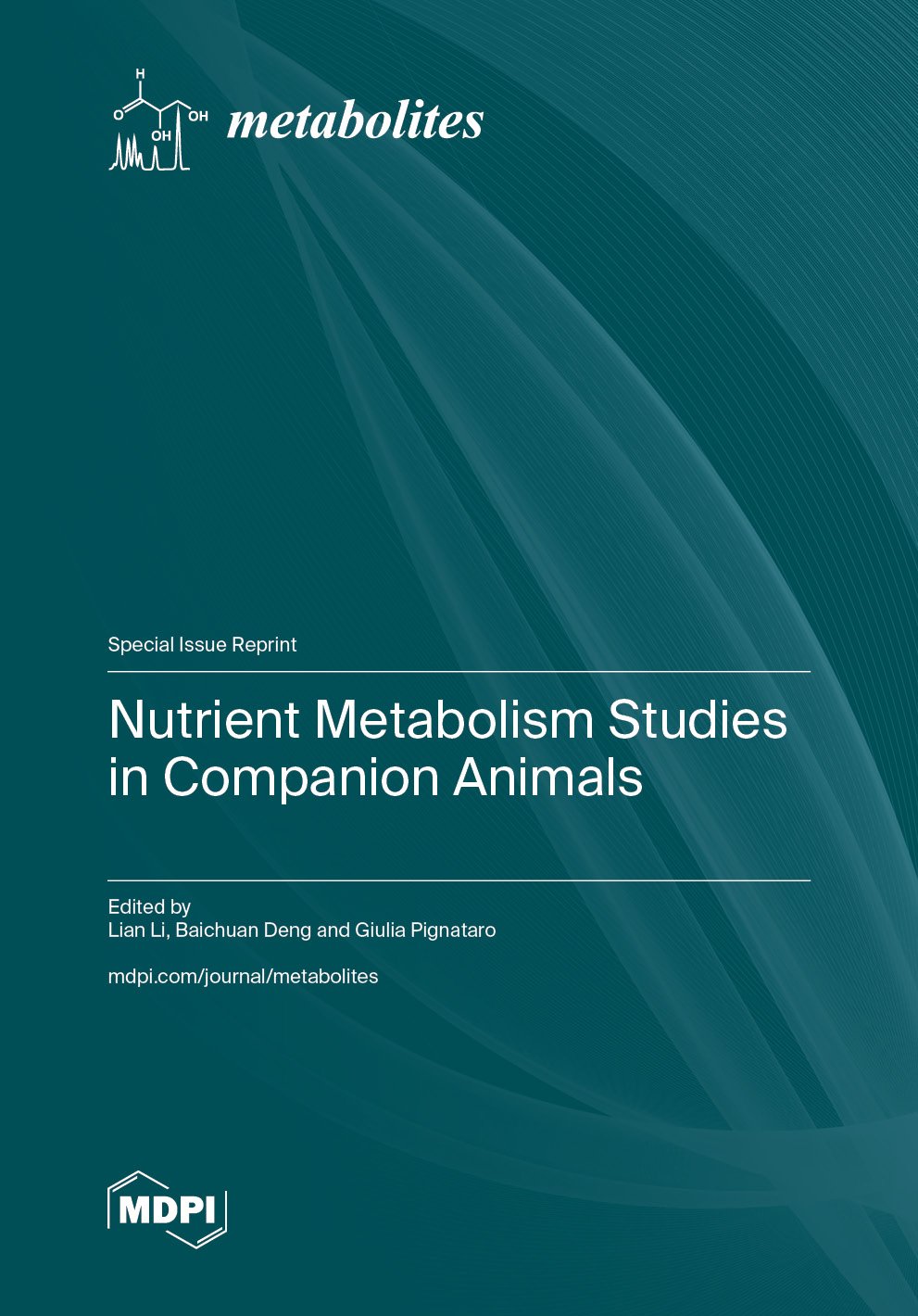 |
28 September 2025
Meet Us at Kidney Week 2025, 6–9 November 2025, Houston, USA
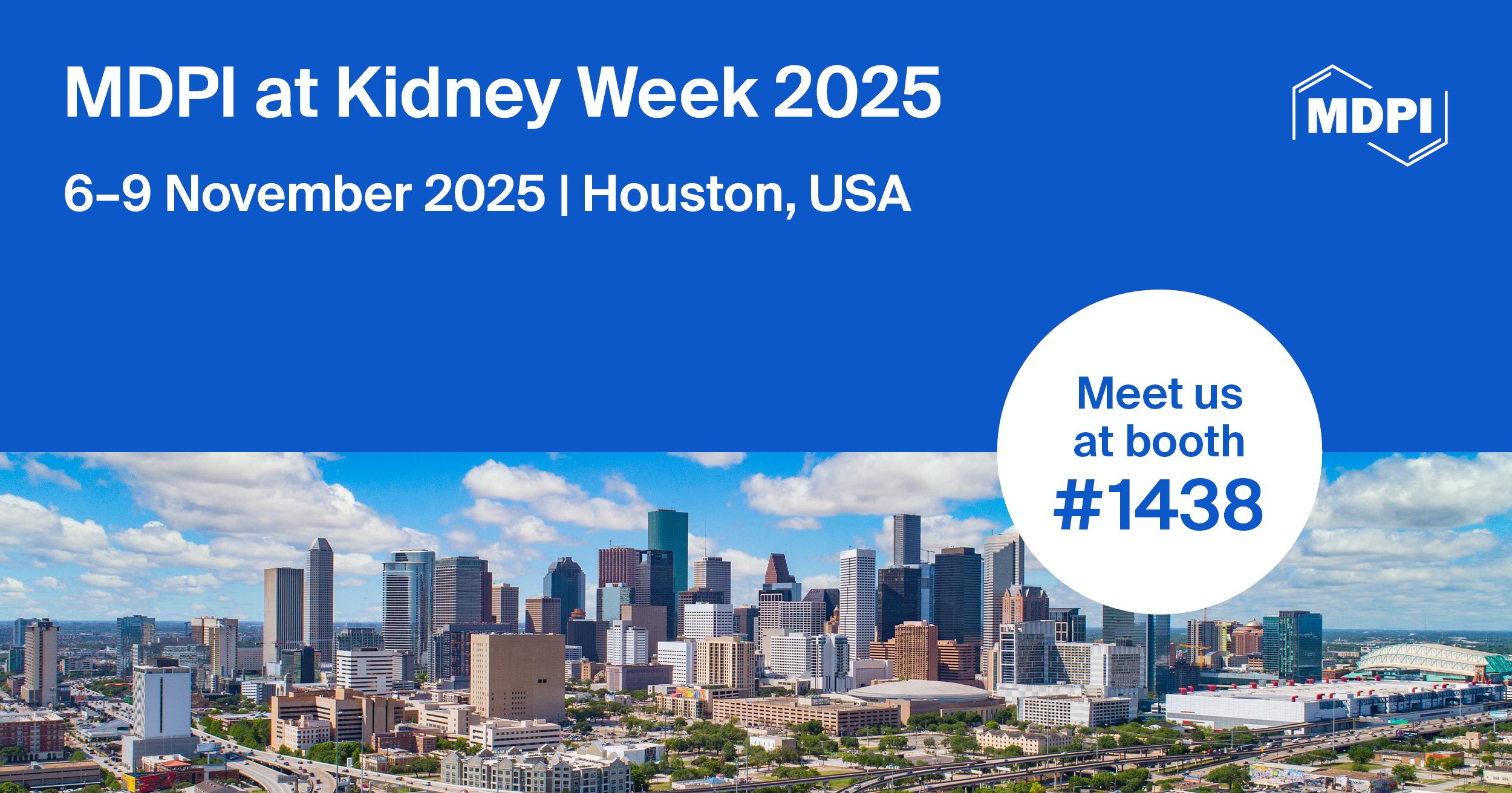
MDPI will attend ASN Kidney Week 2025, which will take place from 6 to 9 November 2025, at the George R. Brown Convention Center, in Houston, USA.
The American Society of Nephrology (ASN) invites you to participate in the largest and most influential international gathering of kidney professionals worldwide. Join the kidney community as we come together with a shared focus on improving the lives of over 850 million people across the globe. At Kidney Week 2025 in Houston, TX, you will have the opportunity to engage with more than 12,000 kidney professionals and experience the Scientific Exposition, which showcases the latest advances in treatment, research, and cutting-edge technology in nephrology. As the world’s premier nephrology meeting, Kidney Week offers exciting and challenging opportunities to exchange knowledge, discover the newest scientific and medical developments, and take part in engaging discussions with leading experts in the field.
MDPI is excited to participate in this prestigious event. We welcome you to visit MDPI’s booth, where you will be able to have face-to-face exchanges with our representatives, and learn more about our open access publishing services.
The following MDPI journals will be represented:
- Kidney and Dialysis;
- Applied Biosciences;
- Biomedicines;
- Cancers;
- Cells;
- Children;
- Clinics and Practice;
- Diabetology;
- Diseases;
- Genes;
- Healthcare;
- IJERPH;
- IJTM;
- Immuno;
- J;
- JMP;
- JPM;
- Life;
- Medical Sciences;
- Metabolites;
- Sci. Pharm.;
- Therapeutics;
- Transplantology;
- Vaccines.
If you plan to attend this event, we encourage you to visit our booth and speak to our representatives. We are eager to meet you in person and assist you with any queries that you may have. For more information about the conference, please visit the official website: https://www.asn-online.org/kidneyweek.
18 September 2025
Meet Us at the 25th National Symposium on Chromatography and Instrument Exhibition of the Chinese Chemical Society (25th NSEC), 17–20 October 2025, Hangzhou, China

Conference: The 25th National Symposium on Chromatography and Instrument Exhibition of the Chinese Chemical Society (25th NSEC)
Date: 17–20 October 2025
Location: Hangzhou, China
MDPI will be attending the 25th NSEC as an exhibitor, welcoming researchers from diverse backgrounds to visit and share their latest ideas.
The symposium will serve as a platform to exchange recent progress in China on research, instrument development, and applications in chromatography and related separation and analytical techniques, including gas chromatography, liquid chromatography, and capillary electrophoresis, as well as the latest advances in multidimensional chromatography, hyphenated techniques such as chromatography–mass spectrometry, and microfluidic chip technologies.
An instrument exhibition on chromatography-related equipment will be held concurrently, providing a venue for chromatographers and instrument manufacturers to communicate and showcase their work. We warmly welcome researchers, practitioners, and industry partners to actively participate in the symposium, submit contributions, and join the exhibition to promote mutual development.
The following open access journals will be represented at the conference:
- Separations;
- Metabolites;
- Analytica;
- Beverages;
- Chemosensors;
- Nutraceuticals;
- Journal of Experimental and Theoretical Analyses.
If you will be attending this conference, please feel free to start a conversation with us. Our delegates look forward to meeting you in person and answering any questions that you may have. For more information about the conference, please visit https://www.chemsoc.org.cn/meeting/25thNSEC.
3 September 2025
Join Us at the MDPI at the University of Toronto Career Fair, 23 September 2025, Toronto, ON, Canada

Date: 23 September 2025
Time: 11:00 a.m.–4:30 p.m
Location: The Chelsea Hotel, 33 Gerrard Street West, Toronto
MDPI is thrilled to announce our participation in the University of Toronto’s largest career fair, taking place at the St. George Downtown Campus. This exciting event brings together thousands of students, graduates, and professionals looking to connect with top employers and explore career opportunities.
We invite all attendees to visit the MDPI booth to discover how you can be part of one of the world’s leading open access academic publishers. Whether you are passionate about scientific research, editorial work, marketing, or supporting global innovation in publishing, we want to meet YOU!
What to expect at our booth:
- Learn more about MDPI’s mission and global impact;
- Explore exciting career opportunities in publishing, editorial, communications, and more;
- Network with our team and ask questions about working at MDPI.
Whether you’re just starting your career or looking to take the next step, don’t miss this opportunity to connect with MDPI. Bring your resume, your curiosity, and your questions—we look forward to seeing you there!
For additional information on the Career Fair and Open MDPI positions, please visit the following links:
1 September 2025
MDPI INSIGHTS: The CEO's Letter #26 - CUJS, Head of Ethics, Open Peer Review, AIS 2025, Reviewer Recognition

Welcome to the MDPI Insights: The CEO's Letter.
In these monthly letters, I will showcase two key aspects of our work at MDPI: our commitment to empowering researchers and our determination to facilitating open scientific exchange.
Opening Thoughts

Society of China University Journals (CUJS) visit to MDPI Basel
In August, we had the pleasure of welcoming a delegation from the Society of China University Journals (CUJS) to our Basel headquarters. The visit was part of CUJS’s broader European tour, which included meetings with several major publishing organizations.
Purpose of the visit
The delegation’s stop in Basel involved an introductory meeting and knowledge-sharing with a view to identifying potential collaboration opportunities with MDPI. The CUJS team shared an overview of the Chinese scientific publishing landscape, including recent policy developments, and gave us insights into the journals and services they operate across China’s academic institutions.
MDPI presentations
We used the opportunity to introduce CUJS to MDPI’s mission, structure, and recent achievements. I presented on the latest developments at MDPI and our role in supporting global open access, addressing many follow-up questions from the delegation. Warm thanks are due to the following colleagues for their contributions to the session:
- Liliane Auwerter (Conference Organizer, Scientific Officer and Sustainability Specialist) shared an overview of our editorial process, including the quality indicators we use to track peer-review performance.
- Renato Merki (Publication Ethics Assistant) presented on behalf of our Research Integrity and Ethics team, emphasizing our commitment to responsible publishing.
- Silvano Bonfatti (Product Manager) introduced the JAMS platform, highlighting how it supports efficient journal management for editors and publishers alike.
- Aimar Xiong (Publisher, Section Managing Editor) and Giuliano Braccini (Office Manager) facilitated the meeting, offering clarity in response to specific questions, building the relationship during and beyond the meeting itself.
“Building relationships with organizations such as CUJS allows us to increase our visibility and reputation”
Why is this important?
China is one of the world’s largest producers of scientific research, with its universities and research institutes playing a key role in global scholarly publishing. Building strong relationships with influential organizations such as CUJS allows us to increase our visibility and reputation vis-à-vis the Chinese academic community, share best practices, learn from differing publishing models, and explore collaborations that have the potential to enhance the quality, reach, and diversity of our journals.
Looking ahead
It was a productive and friendly exchange that reflected our shared commitment to advancing scholarly communication and improving journal publishing practices. We value these visits, which allow us to create collaborations with stakeholders in the global academic community.
Our Basel office is a hub for hosting international delegations, partners, and collaborators. We look forward to creating more global connections that support our mission.
Impactful Research

Appointment of Dr. Tim Tait-Jamieson as Head of Publication Ethics
As part of our ongoing commitment to research integrity and publishing excellence, I am delighted to announce that we have appointed Dr. Tim Tait-Jamieson as Head of Publication Ethics.

In this role, Tim will lead the development of our ethics strategy and oversee the continued growth of the Publication Ethics Department, which is based across our offices in Basel, Manchester, Belgrade/Novi Sad, and Cluj. Guided by the principles of effective prevention and efficient resolution, the department plays an essential role in ensuring the highest standards of integrity throughout our editorial processes.
Department focus
Working closely with internal teams and external partners, the Publication Ethics Department focuses on refining our policies, aligning our operations with international best practices, and addressing complex cases with fairness and transparency. This work is critical in supporting our editors, reviewers, and authors, reinforcing MDPI’s contribution to the global dialogue on research integrity.
“Research integrity is something to which we all contribute through our daily work at MDPI”
About Tim
Tim joined MDPI in 2021 and has held several roles within the Publication Ethics Department, most recently serving as Research Integrity Lead. Based in our Basel office, he brings a strong academic background, with a Ph.D. in Geography from the University of Fribourg, Switzerland, and a proven track record of leadership in research integrity.
Research integrity is something to which we all contribute through our daily work at MDPI. I look forward to Tim’s leadership as we continue investing in the people, processes, and partnerships that uphold the trust and credibility of scholarly publishing.
Read more:
Inside MDPI

How and why MDPI offers Open Peer Review
At MDPI, we are committed to advancing openness and transparency in scholarly publishing. One area where we’ve taken a leadership role is peer review. Since 2014, MDPI has offered authors the option of open peer review, giving them the opportunity to publish reviewer comments alongside their papers. Each year, more authors are choosing this path, helping to build trust in the editorial process and provide valuable context for the research we publish.

Jack McKenna (Senior Content Specialist, MDPI) recently wrote an informative piece looking at the impact and importance of open peer review at MDPI. He highlights how this approach not only benefits readers but also gives well-deserved recognition to our reviewers, who generously dedicate their time and expertise to the academic community.
I encourage you to read this blogpost to see how MDPI is helping set standards for transparency in scholarly publishing.
Coming Together for Science

Recap of MDPI’s AIS 2025 Conference in Kuala Lumpur
Entering the month of August, we held The 2nd International Conference on AI Sensors and Transducers (AIS 2025) in Kuala Lumpur, Malaysia.
“AIS is quickly becoming a premier event in the field”

The second edition of AIS brought together 335 attendees from across Asia and beyond, including participants from China, Japan, Korea, and Southeast Asia. The event, chaired by Prof. Dr. Toshihiro Itoh (University of Tokyo), Prof. Dr. Sang-Woo Kim (Yonsei University), and Prof. Dr. Chengkuo Lee (National University of Singapore), continues to grow in reputation and has become an important platform for researchers and students to present their work, exchange ideas, and build international collaborations.
AIS is quickly becoming a premier event in the field, with participants highlighting its quality of service, its expanding academic network, and the value it delivers in the context of tightening research budgets in the region.
It was also excellent to see our new MDPI journal AI Sensors, which originated from a conference topic, host a successful launch party at the event.
Highlights from participant feedback:
- Southeast University (China) sent a student delegation and considers AIS a regular fixture for Ph.D. students in need of international conference experience.
- CAS Aerospace Information Research Institute sent a 10-member delegation and plans to further promote AIS internally.
- Japanese researchers regard AIS as a must-attend event, placing it on a par with IEEE conferences and citing the benefits of networking and exchange.
- Korean academics praised the organization and noted improved perceptions of MDPI among their institutions, viewing AIS as a strategic opportunity to deepen engagement in the region.

Award winners
We recognized the recipients of the Best Presentation, Best Scientist, Best Poster, and Best Student Paper awards, whose contributions set a standard for academic excellence. The full award announcement is available here.
Looking ahead
The 3rd International Conference on AI Sensors and Transducers will be held from 5 to10 August 2026 in Jeju, Korea. The General Chairs will be Prof. Inkyu Park (Korea Advanced Institute of Science and Technology), Prof. Zhou Li (Tsinghua University), Prof. Xinge Yu (City University of Hong Kong), and Prof. Chengkuo Lee (National University of Singapore). We look forward to bringing together innovators, researchers and experts who are shaping the future at the intersection of sensors, sensing technology, transducers and artificial intelligence.
Thank you
Our conference team managed this event with great agility and professionalism and are already planning improvements to make the conference even more accessible. Special thanks to the National University of Singapore for their support, and to our entire conference team and collaborators for their dedication.
AIS is gaining momentum, and we look forward to supporting its role as a bridge between MDPI and the global academic community.

“Our conference team managed this event with great agility and professionalism”
Closing Thoughts

Recognizing our outstanding reviewers
As we close this edition of the newsletter, I would like to spotlight MDPI’s 2024 Outstanding Reviewer Awards, which showcase a group of winners whose contributions often go unseen but are essential to the integrity of scholarly publishing: our reviewers.
In 2024, more than 215,000 reviewers dedicated their time and expertise to MDPI journals. From this community, we are proud to recognize 356 recipients of the Outstanding Reviewer Awards, who went above and beyond by providing timely, thorough and constructive feedback.
These awards are not only a token of our appreciation but also a reflection of the values we stand for: rigor, fairness and collaboration in advancing science.
To explore the full list of awardees across disciplines, from life sciences to the humanities, please visit the following pages:
- Biology and Life Sciences
- Business and Economics
- Chemistry and Materials Science
- Computer Science and Mathematics
- Engineering
- Environmental and Earth Sciences
- Medicine and Pharmacology
- Physical Sciences
- Public Health and Healthcare
- Social Sciences, Arts and Humanities
About MDPI Awards
To recognize the academic community, MDPI journals regularly offer various awards to researchers in specific fields. Serving as a source of recognition and inspiration, these awards help increase the influence of scholars who have been credited with outstanding achievements and are making a significant contribution to the advancement of their respective fields.
To explore more opening Outstanding Reviewer Awards, please click here.
To all our reviewers: thank you for being the foundation of trust that makes open access publishing possible!
Chief Executive Officer
MDPI AG









































